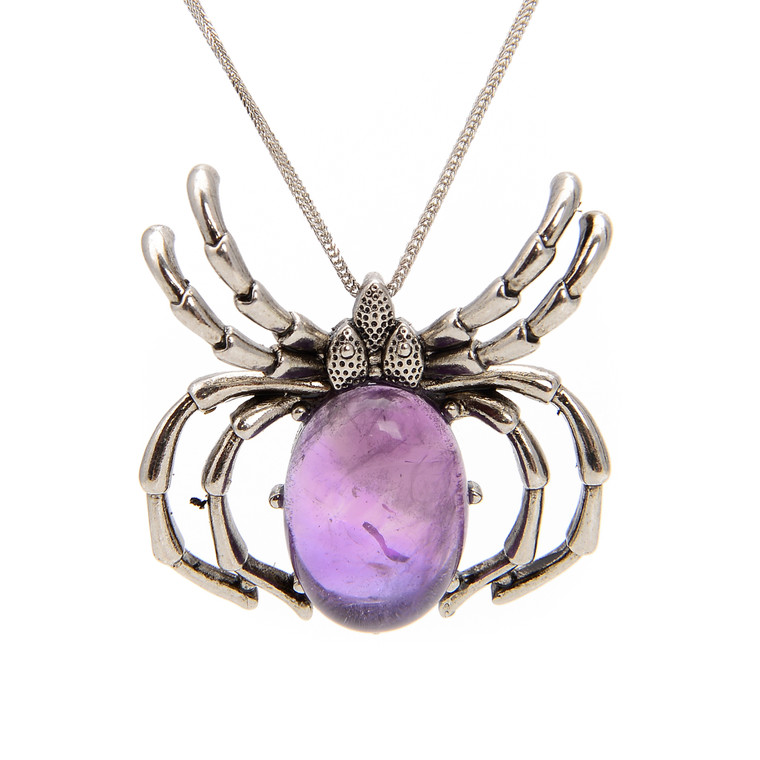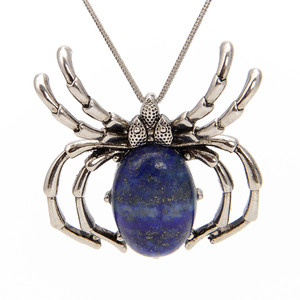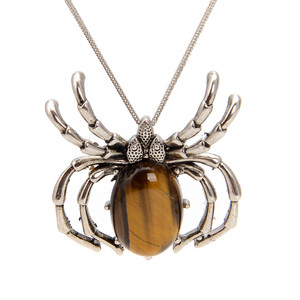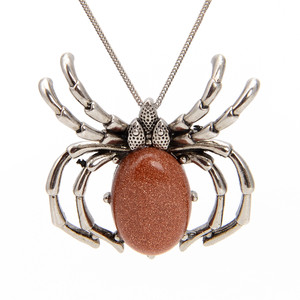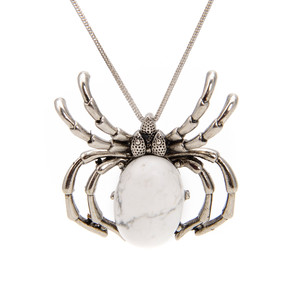
Amethyst, Natural, Spider, One Pendant, 35mm
Amethyst, Natural, Spider, One Pendant in a Metal Alloy Finding, 35mm
Amethyst is a violet variety of quartz which is is transparent to translucent. It owes its violet color to natural irradiation, impurities of iron and in some cases other metals or trace elements. Amethyst occurs in primary hues from a light pinkish violet color to a deep purple color.
The name comes from the Greek amethystos from "not" and methyo for "intoxicate", a reference to the belief that the stone protected its owner from drunkenness.
The major sources of Amethyst are from Brazil as geodes within volcanic rocks, Uruguay, South Korea, China, Russia, United States, and South India. Zambia is one of the largest global amethyst producers.
Amethyst is the state gemstone of South Carolina.
Hardness 7
This is a natural stone that has had no treatment other than cutting, drilling, and polishing in China.
Metal Alloy is a metal made by combining two or more metallic elements, base metals, to give greater strength or resistance to corrosion. In mining and economics, base metals refer to industrial non-ferrous metals excluding precious metals, like silver, gold, and platinum. Base Metals include copper, aluminum, nickel, tin, zinc antimony, bismuth, lead and many more. Metal Alloy, also known as Pewter and is usually a tin based alloy 85-95% of the time but could also be zinc based.
In December of 1994, The US Safe Drinking Water Act defined Lead-free as having less than 0.25% lead content. Most newly made solid pewter on the market today is considered lead free by these standards. But it is still recommended to not give children Metal Alloy jewelry if there is any chance, they will put it in their mouths!

